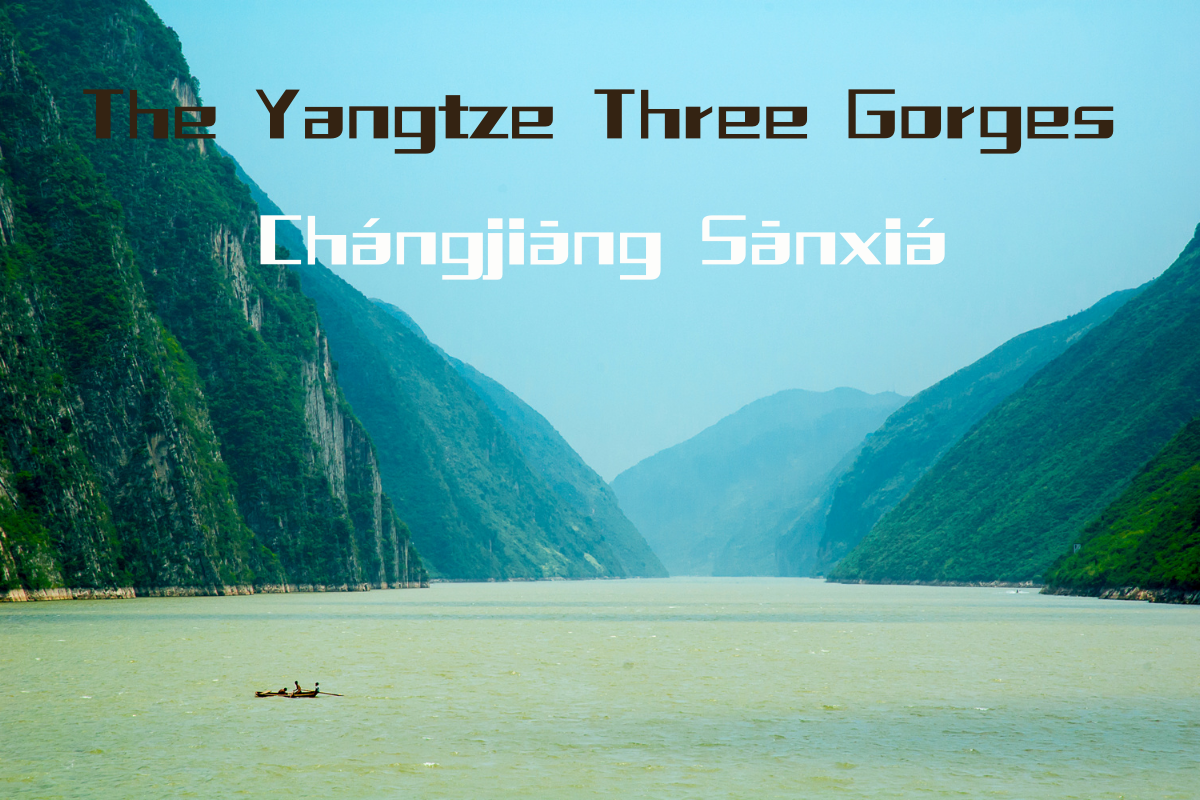Exploring the Yangtze Three Gorges-长江三峡 (cháng jiāng sān xiá)
The Yangtze Three Gorges, known as 长江三峡 (cháng jiāng sān xiá) in Chinese, is a remarkable natural and cultural landmark in China. In this introduction, we will explore the key features of the Yangtze Three Gorges, emphasizing essential vocabulary for Chinese learners. Let's delve into the beauty and significance of this awe-inspiring region!
Gorgeous Scenery
The Yangtze Three Gorges 长江三峡 (cháng jiāng sān xiá) is composed of three sections: 瞿塘峡 (Qútáng Xiá) Qutang Gorge, 巫峡 (Wū Xiá) Wu Gorge, and 西陵峡 (Xīlíng Xiá) Xiling Gorge. Each gorge boasts its own unique landscapes and charms. The "Qutang Gorge" is renowned for its towering cliffs and narrow passageway, while the "Wu Gorge" showcases mist-covered peaks and tranquil waters. The "Xiling Gorge" is the longest and offers a diverse range of scenery, from lush forests to ancient temples.

Cultural Heritage
Beyond its natural beauty, the Yangtze Three Gorges is steeped in historical and cultural significance. The region has been inhabited for centuries, leaving behind relics, legends, and tales. The ancient pathways, temples, and cliffside carvings offer insights into the lives of those who once called this area home. These cultural elements enrich the experience for visitors seeking a deeper understanding of China's history.
Hydroelectric Power
The Yangtze Three Gorges is not only a picturesque landscape but also a vital source of hydroelectric power. The construction of the Three Gorges Dam, the world's largest hydroelectric power station, has harnessed the energy of the Yangtze River to provide electricity for millions of people. This demonstrates the harmonious coexistence between nature and modern technology.
"长" (cháng) is pronounced similar to the English word "chip" at the beginning. Place your tongue at the front of your mouth and produce a clear "ch" sound.
"江" (jiāng) is pronounced similar to the English word "jeep." Keep your tongue in the middle of your mouth and slightly open your lips.
"三" (Sān) is pronounced similar to the English word "san." Place your tongue at the front of your mouth and produce a clear "s" sound.
"峡" (xiá) is pronounced similar to the English word "she." Place your tongue at the front of your mouth and produce a clear "sh" sound.
Key Sentences:
The Yangtze Three Gorges is a breathtaking natural wonder in China.
长江三峡是中国的令人叹为观止的自然奇观。
Chángjiāng Sānxiá shì Zhōngguó de lìng rén tànwéiguānzhī de zìrán qíguān.
Wu Gorge is known for its mist-covered peaks and serene waters.
巫峡以雾蒙蒙的山峰和宁静的水域而闻名。
Wū Xiá yǐ wù méngméng de shānfēng hé níngjìng de shuǐyù ér wénmíng.
The Three Gorges Dam generates hydroelectric power for the region.
三峡大坝为该地区提供水电能源。
Sānxiá Dàbà wèi gāi dìqū tígōng shuǐdiàn néngyuán.